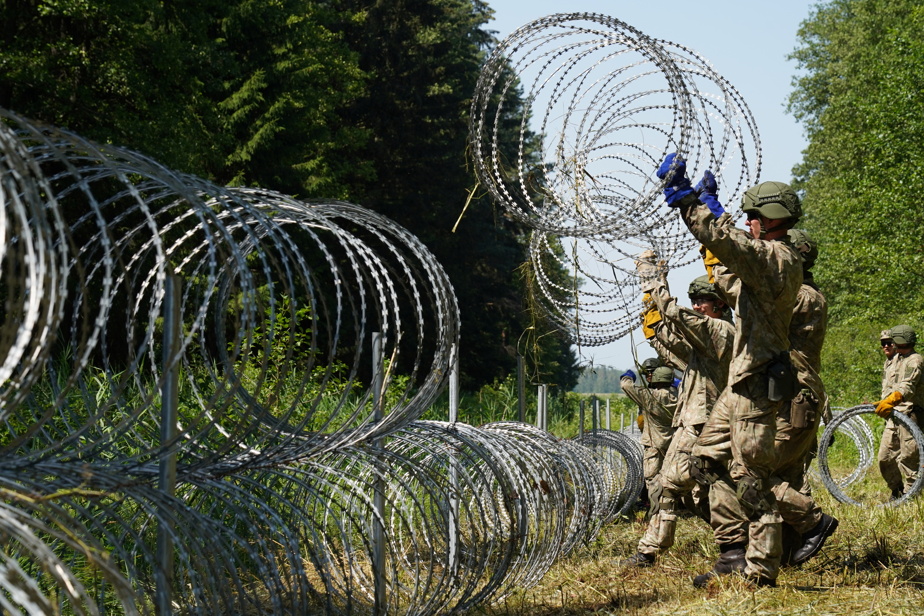(Vilnius) The Lithuanian parliament on Tuesday adopted a law that legalizes the refoulement of asylum seekers, an additional measure to combat the influx of migrants arriving in this country via the Belarusian border.
The Baltic country, a member of the European Union, has been enforcing pushbacks since 2021, the year thousands of migrants and refugees – mostly from the Middle East and Africa – started trying to enter the EU via Lithuania, Latvia and Poland.
The EU argued that the influx was a “hybrid attack” orchestrated by the Belarusian regime in retaliation for international sanctions against Minsk.
The number of attempted crossings has since declined, but Lithuanian border guards continue to deny entry to dozens of migrants a day.
“When it comes to national security and human rights, there are no easy solutions, but there are no alternatives either,” said Lithuanian Interior Minister Agne Bilotaite. to journalists.
“Our country must defend itself,” she insisted.
According to Ms Bilotaite, Belarus is in the process of negotiating new direct air links to Minsk from Iran and Iraq, which could suggest “possible new (migrant) flows”.
“We have to be ready and we need instruments,” she explained.
Last week, Amnesty International warned that the new law, if signed by the president, would “give torture a green light”.
Activists said they would call on him to veto it.
“These amendments are contrary to both international law and our own commitments,” Jurate Juskaite, director of the Lithuanian Center for Human Rights, told AFP.
“They are immoral, they endanger the life and health of people trying to enter,” she added.
Last year, Lithuania completed construction of a four-meter barbed wire fence along the border with Belarus.
It stretches for about 550 kilometers, while overall this border is 700 kilometers long.
Neighboring Poland also regularly resorts to pushbacks on its border with Belarus.
The controversial measure was authorized by a decree of the Interior Ministry and an Aliens Act – although in two separate cases the courts have found that it violates the rights of refugees.

